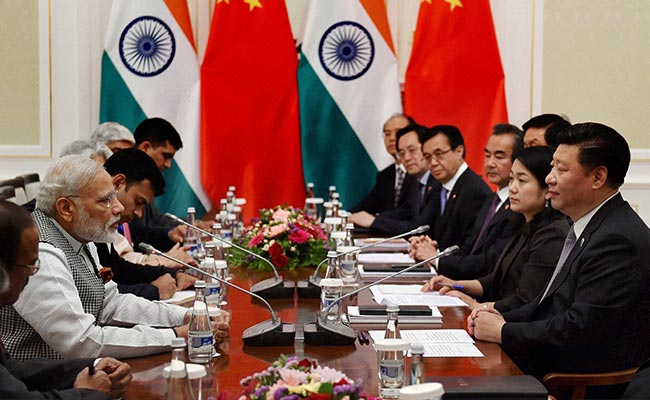Brajesh Mishra, the National Security Advisor, had just returned to Prime Minister Vajpayee's hotel room where we waited for him. Mishra had finalized the draft press statement to be issued after the conclusion of Vajpayee's talks with President Musharraf. There were two critical parts in the statement which read as follows: "To carry the process of normalization forward, the President of Pakistan and the Prime Minister of India agreed to commence the process of the composite dialogue in February 2004." The subsequent part stated, "Prime Minister Vajpayee said that in order to take forward and sustain the dialogue process, violence, hostility and terrorism must be prevented. President Musharraf reassured Prime Minister Vajpayee that he will not permit any territory under Pakistan's control to be used to support terrorism in any manner."
Vajpayee looked at it long and hard and told Mishra that the latter two sentences should come before the first sentence.
This, as can be clearly understood, not only changed the sequence but also the entire narrative as it made the resumption of the composite dialogue contingent upon Pakistan putting an end to cross-border terrorism. In other words, terror and talks could not go together. Mishra was a little reluctant to go back to his Pakistani interlocutor and wondered whether he would accept an amendment at this late stage. Vajpayee told him coolly, "In that case, we go back to India without a statement." Mishra went back, talked to his counterpart and succeeded in persuading him to accept the amendment suggested by Vajpayee.
It once again confirmed the validity of the theory that in life generally, and in diplomacy especially, one should never be in a hurry. Most importantly, one should never show that one is in a hurry. One should never display undue impatience. The best policy is to be cool about it, as Vajpayee was that day in Islamabad. It was only a question of changing the sequence of a few sentences, yet Vajpayee did not hesitate to send a tough message to Pakistan. He knew that impatience and hurry might lead one to pay a price which could be excessive and not in national interest.
This was the lesson India forgot while negotiating for our entry in the Nuclear Suppliers Group. We should have been aware of China's strong, strategic and enduring friendship with Pakistan and consequently, its equally strong opposition to India's membership of the NSG. We should also have been aware of the reservation some other countries had regarding our membership. Our President and Foreign Secretary had already visited China. We also had other means of assessing the Chinese intent. But we still went ahead and entirely unnecessarily exposed our Prime Minister to certain failure when he met President Xi in Tashkent. Heavens would not have fallen if India did not become a member of the NSG in 2016. Heavens indeed have not fallen after the denial of that membership.

Prime Minister Narendra Modi with Chinese President Xi Jinping during a meeting in Tashkent on the sidelines of SCO Summit (PTI photo)
The worst outcome of this whole exercise has been that we ourselves have hyphenated India with Pakistan. It has taken a great deal of effort on the part of successive governments in India to kill the idea of that hyphenation. It suits China ideally to put India in the same bracket as Pakistan. It automatically devalues India and puts China in a different league. In today's day and age, when India has left Pakistan way behind in everything, it diminishes every Indian to be put at par with that country. Pakistan is a rogue state even in the nuclear field and the worst proliferator. Why should we give it a clean chit and say we have no objection to Pakistan being included as a member?
External Affairs Minister Sushma Swaraj was generous to China in her statement. She said China was not really opposed to India's membership, it only had some procedural issues. Subsequent statements of her ministry squarely blamed China for blocking India's entry. Why this contradiction in our approach? The Prime Minister also was far more restrained in his comments on this issue in his Times Now interview than the official spokesperson.
Where was the Cabinet Committee on Security in all this? Was the matter ever discussed in that committee?
What was the message India wanted to send through the visit of Finance Minister Arun Jaitley to China at the height of the NSG crisis? I know that India had shown scant interest in the Asian Infrastructure Investment Bank when it was being set up. Why did we have to attend its board meeting at the level of the FM when China was treating us so shabbily on the NSG issue?
Why was the issue raised to such a pitch, and why did we invest so much diplomatic capital in securing the membership of the body at the last stage i.e. the Prime Minister's meeting with the Chinese President and the visit of the highest-ranking Indian official, namely the Foreign Secretary, to Seoul to hang around when the NSG meeting was taking place behind closed doors in that city? All this shows that India had completely misread the situation and was somehow hopeful, even convinced, that victory was round the corner and the credit for securing this "epoch-making" victory should be shared only by a few. Now who should be held responsible for the failure?
But why talk of failure? Like the advertisement "daag acche hain" for a certain brand of detergent, we are now being told to believe that "failure acche hain."
(Yashwant Sinha is a senior BJP leader and former Union Minister of External Affairs.)
Disclaimer: The opinions expressed within this article are the personal opinions of the author. The facts and opinions appearing in the article do not reflect the views of NDTV and NDTV does not assume any responsibility or liability for the same.


